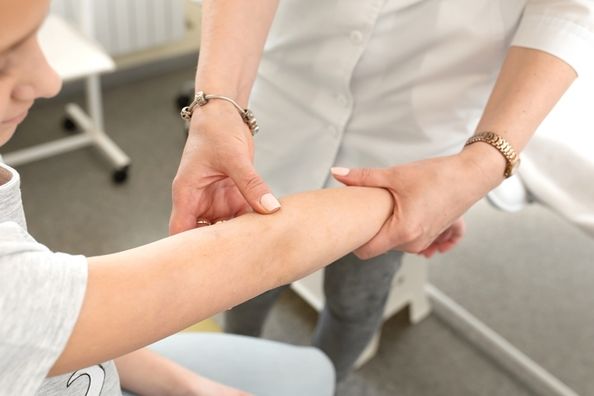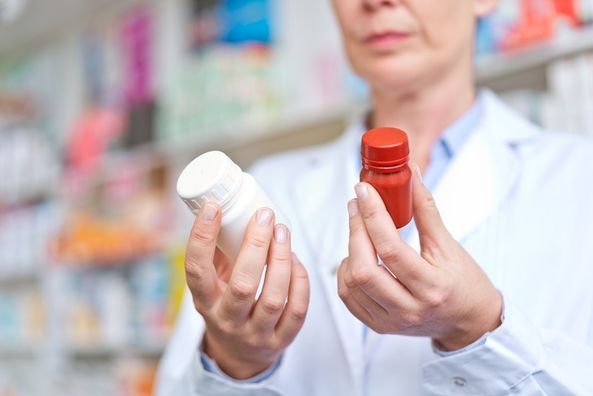There are many misconceptions and old wives tales surrounding your skin. Follow these tips and tricks to keep your skin healthy year after year.
- We can tell what side of the car you sit on most.
Most ultraviolet rays from the sun go directly through side car windows. To combat this, make sure you apply sunscreen (at least SPF 30) every morning and reapply every 2 hours, even in the winter.
- Don’t stop your Retin‑A/Retinoid in the summer!
Many people think that Retin‑A breaks down in the sun or causes a lot more sun sensitivity. It really does not. Keep applying your retinoid all year long for its anti-aging benefits and so your skin doesn’t have to adjust to it again in the fall.
- Squeaky clean = Bad
If your face has a squeaky clean feeling after you are done washing your face, all of the good moisture you want to keep has been removed. Avoid soap. If you have dry or sensitive skin, wash with a gentle or moisturizing cleanser. Cetaphil® or CeraVe® are both good choices.
- For female hair loss, try men’s Rogaine 5% minoxidil formula.
Many people are not aware that men’s and women’s Rogaine are different strengths. Many women’s versions are 2% strength, while men’s are 5%. It is safe for women to use the men’s version. You can also take 5,000 micrograms of biotin to aid in hair loss.
- Think twice about fancy department store skin care purchases.
Prescription anti-aging products are actually better at producing collagen and younger looking skin than fancy brands you find at the department store. Prescription grade products are usually about the same price.
Your dermatologist or esthetician can help provide a customized solution based on your needs and skin type.
Find a Dermatology Provider near you >
- Not all mineral makeups are created equal.
The best mineral makeups, like Jane Iredale, contain no talc, FD&C dyes, synthetic preservatives and fragrances or parabens to let skin breathe and function normally. Make sure you check the label before you buy!
- Throw away your magnifying mirror!
Stop reading this article and go throw away your magnifying mirror. Done? Good. While you may think that you need it to really see your skin, it is just causing you trouble. People do not have magnified eyes therefore; no one can look at you like a magnifying mirror does. Plus, these mirrors encourage unnecessary picking and squeeze since you are able to see your face and pores in this highly magnified manner.
- Prepare to get naked for that full skin exam.
Yes, that means totally naked – no underwear necessary. Your dermatologist needs to see your skin, all of it. Skin cancer can be found anywhere including under toenails, in between toes, in armpits and other areas where the sun doesn’t shine.
- Hydrating your body is not the same as hydrating your skin.
While it is important to drink 8 glasses of water a day for your health, it is not going to hydrate your skin. The amount of moisture or hydration in your skin is affected by your environment.
If you are in a dry heat area, you can drink all day long and your skin will still be dry. If you are in a humid area, your skin will be plump even if you drink very little.
- Exercise does not make you look younger.
Unfortunately exercise does not have anti-aging benefits. Exercising helps you be fit and healthy, which is great for your overall health and well-being but the benefits don’t translate to your skin. Thinner and more athletic people over age 40 have less fat under their skin and can look older than overweight individuals.
- Base tans don’t protect from sun damage.
You can still get sun damage even though you may not burn and a “base tan” only provides an equivalent of an SPF 4. Be sure to always wear sunscreen when in the sun and try to stay in the shade or wear a hat with a wide visor whenever possible.
- Tanning beds are worse than the sun.
Tanning beds have much more ultraviolet A than ultraviolet B; this may burn you less but greatly increases your chance for skin cancer, especially melanoma. We have seen melanoma rates rise among young white women by 3% each year since 1992.
Tanning beds are so bad that recently they have become newly regulated by the federal government and states. Currently there is talk of a national ban by minors younger than 18.
- SPF 100 is really not that much better than SPF 30.
SPF 30 blocks about 98.6% of the sun’s rays, whereas SPF 100 may block about 99.2%. Just make sure you keep reapplying throughout the day no matter the SPF level you choose.
- Sunscreens are not harmful.
There is a known reduction in skin cancer from routine sunscreen use. The FDA-approved sunscreens available on the market have no evidence-based studies showing carcinogenicity or other harmful effects.
If you have any questions about your skin, or skin condition, please schedule an appointment with a board-certified dermatologist.
Find a Dermatology Provider near you >
Health Topics:







